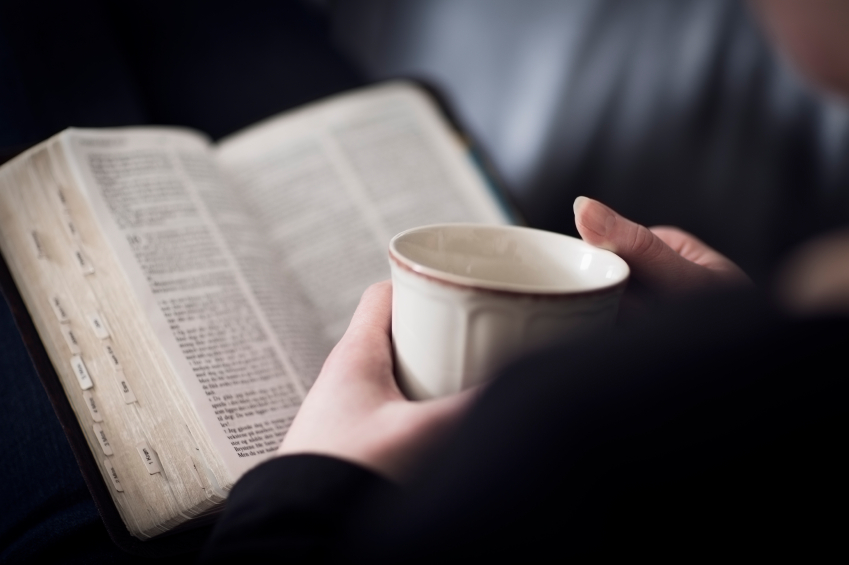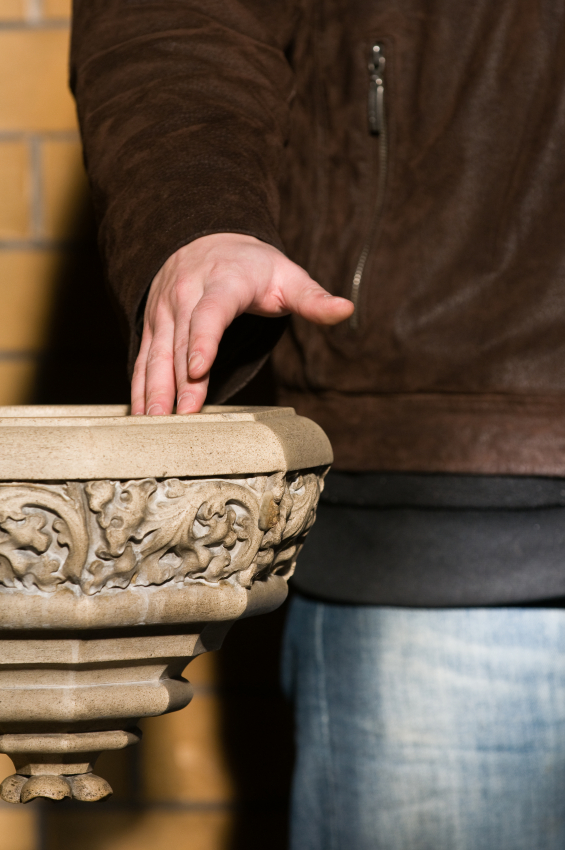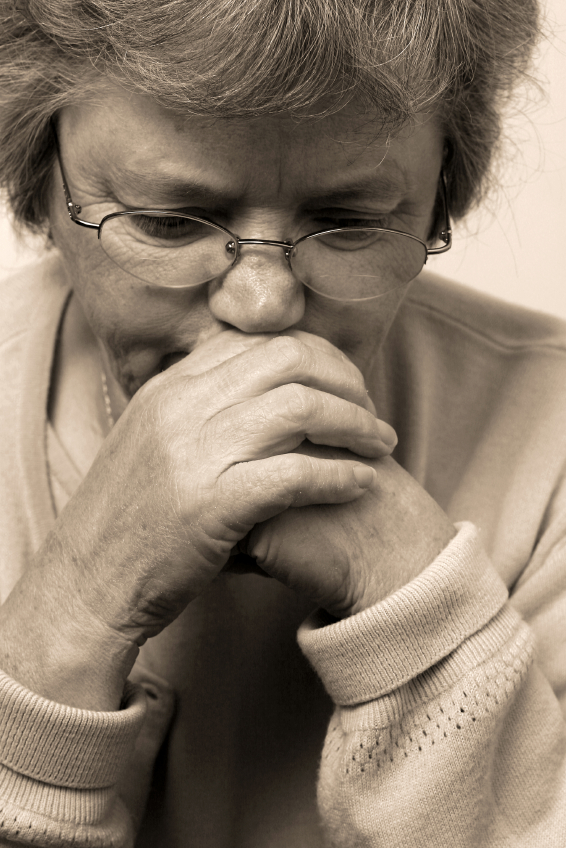How do I prepare for Mass on Sunday?
A few of us are saying, "I prepare by getting my family to church, with the least amount of fighting." All of us have, at one time or another, had the experience of being there at the beginning of Mass and feeling many miles away. It can seem that we are totally distracted by everything, anything going on around us, and by a long list of things, emotions, memories, that find their way into our consciousness the minute Mass starts.
This very common experience offers us the opportunity to reflect upon what we can do to make our experience of Mass much richer, enjoyable, and helpful for our faith life.
It starts with an attitude
If I think about going to Mass merely as "fulfilling my Sunday obligation," I've already lowered the bar terribly to begin with. The Church - the whole People of God - asks us to come together to give thanks and praise to God and because the Mass makes us who we are as Church. The Second Vatican Council's Constitution on the Sacred Liturgy tells us that the Eucharist (which means "Thanksgiving") is the "source and the summit" of our faith life. Our faith life comes from the liturgy and when we celebrate the liturgy well, that celebration is the best expression of our faith life. The Constitution sought to renew the liturgy so that we might all have "fully conscious and active participation" in it. How different this vision is from "attending Mass"!
We can think about preparing for the liturgy the way we'd prepare for anything we want to participate in fully. If we are going to a new movie that is out, we might read several reviews and get connected with the buzz about the movie. If we are going to sporting event, it always helps our involvement if we stay up to date with the teams and know something about the players and some of the team stats. If we are going to a committee meeting or a neighborhood organization gathering, we'd typically get ourselves ready to know the issues and be ready to participate in the event.
The trouble is with the Mass is that we don't tend to think about our genuine participation in it. We can have a lot of experience of not "getting anything out of it," when we don't prepare to be engaged in the actions of the liturgy and give ourselves to them. So, we are going to briefly reflect on some possibilities for doing just that.
It starts at home
Thinking of the Eucharist as a celebration for which we need to be fully conscious and in which we will actively participate starts with knowing what we will be celebrating. If we're going to an ethnic festival, we have a different interior sense, depending upon what we're going to. If we're going to an Irishfest celebration, and we're Irish, all kinds of things will align our spirits with that celebration. We might tell our children some family stories and we will have memories to recount of past celebrations. If we are going to a Cinco de Mayo celebration, in the United States - commemorating the victory of Mexico over the French at the beginning of the American Civil War - and our family is not very familiar with the history of this celebration and what it means for the Mexican-American communities in the U.S., we will look up this information and share it with our family so that we are ready to enter into the celebration. In both examples, knowing the cultural and historical background of the celebration helps so much to enjoy the symbolism and take part in it more fully.
What's going on with this liturgy and how do I find out?
Often the previous week's parish bulletin will help us know what the next Sunday is all about. In addition, there are web sites, like our Online Ministries site, which provide reflections, a Weekly Guide, and special seasonal helps, to get to know what is going on, as well as helps to understand the Liturgical Year. Gradually, we will grow in a sense of the rhythms and the context of the whole year and we won't want to miss what is coming up in the weeks ahead. And, we we do fully participate, the relationship between the liturgy and our lives grows.
Is this a Sunday of Advent or Lent? Is it a special soleminty or feast - like the Holy Trinity or Christ the King? Is it one of the Sundays of Ordinary Time? Eventually, we will get to know how these seasons work and how the readings work in those seasons.
Reading the Collect or opening prayer of the Sunday
After the introductory rites at Mass, the Priest will invite us all to pray, by saying "Let us pray." He includes a bit of silence for us to do that. Often, we aren't ready to pray, so we stand there in silence or watch the server fetch the book for the priest to lead us in prayer. In actuality, as the name of the prayer implies, the Priest's prayer "collects" or "gathers" our prayer in this prayer he says. We'd make two suggestions for our preparation for Mass on Sunday.
One is, as I'm getting dressed or getting ready to go to Mass, we can ask ourselves, in effect, "What do I want to pray for when the Priest invites us to pray?" The point of the question is not to list all the petitions which might be on my mind - from the health of my loved ones to world peace. What is it that is forming in my heart as a genuine desire for God to give me during this Mass? If I have no desire, no expectation coming to the liturgy, my chances of getting something from it are lessened. We might, for example, say, "I'm going to ask the Lord, in that brief moment when the Priest invites me to pray, to say something like, 'Lord, let me pay attention today and let me participate more fully in the way I engage in the readings, the homily, the preparion of the gifts, in my responses, in my singing, in the devotion with which I receive Holy Communion, and in my sense of leaving Mass with a sense of Mission.'" That's a lot to ask, but as time goes on, if we develop this habit, we will focus these requests and be comfortable knowing what to do when we are invited to pray.
The second opportunity we have is to read the Collect for this Sunday's Mass, so that we know how the Priest will collect our prayers and how the Church frames the prayer for this day and week. This Collect prayer can be found in a Missal or a paper missalette. The upcoming Collects can be found at a link on our Praying Ordinary Time home page and with a link on the Weekly Guide for Daily Prayer page each week.
Reading the readings in advance
 When we have read the readings in advance - with a missalette or online on a site like ours - we know what celebration we are going to. First of all, it helps us hear them, but knowing in advance what we are listening for. It also helps us see the connection between them. For most of the Sundays of Ordinary Time, for example, the Gospel is taken from Matthew, Mark or Luke - read in consecutive years - pretty much, one story after another throughout the gospel. The First Reading, taken from the Hebrew Scriptures, is chosen on those Sundays to connect with the Gospel - either by theme or message - preparing us to hear the Gospel. The Responsorial Psalm allows us to celebrate something of the message of the First Reading. The Second Reading, taken from one of the letters of the Apostles or from the Acts of the Apostles, in not directly connected with either the First Reading or the Gospel. It is, for our nourishment, a pretty continuous reading - from week to week - through the letters of early Church.
When we have read the readings in advance - with a missalette or online on a site like ours - we know what celebration we are going to. First of all, it helps us hear them, but knowing in advance what we are listening for. It also helps us see the connection between them. For most of the Sundays of Ordinary Time, for example, the Gospel is taken from Matthew, Mark or Luke - read in consecutive years - pretty much, one story after another throughout the gospel. The First Reading, taken from the Hebrew Scriptures, is chosen on those Sundays to connect with the Gospel - either by theme or message - preparing us to hear the Gospel. The Responsorial Psalm allows us to celebrate something of the message of the First Reading. The Second Reading, taken from one of the letters of the Apostles or from the Acts of the Apostles, in not directly connected with either the First Reading or the Gospel. It is, for our nourishment, a pretty continuous reading - from week to week - through the letters of early Church.
As we read the readings - and this doesn't take very long and we don't have to wait until Sunday morning to do it - we can begin to till the soil of our hearts by asking ourselves, "What is the Good News here for me, for us?" We can then ask, "What is the challenge here for me, for us?" Finally, we can ask, "How will this message help me celebrate at the table of the Lord this Sunday?" As we do this, week after week, it becomes easier and richer for our celebration.
Arriving is part of the journey
If we go to the church, consciously aware that we are being drawn there by the Holy Spirit, and if we have a sense that we are approaching something very special and impactful on our lives, we can prepare ourselves and our family to enter the church in this spirit. It is different from entering a museum or a movie theater. We are entering the house of God in which we become God's People, giving God thanks and praise for God's tremendous love and for the nourishment we are about to receive.
Holy Water
 The first symbol which greets us at the door is water which has been blessed. When we dip our hand in the water and sign ourselves with it, we can experience a sense that we are entering this church, re-connecting with our identity as Baptised into Jesus' death and resurrection. If we do this intentionally, it adds meaning to our journey into the celebration.
The first symbol which greets us at the door is water which has been blessed. When we dip our hand in the water and sign ourselves with it, we can experience a sense that we are entering this church, re-connecting with our identity as Baptised into Jesus' death and resurrection. If we do this intentionally, it adds meaning to our journey into the celebration.
Genuflecting
It is a rare and special ritual we do next. When we approach our pew or seats, we look up at the place where the Eucharist is reserved - usually signified by a red vigil lamp - and we genuflect, recognizing that we are before our God and Savior. If we really let that gesture have that level of meaning, we will do it consciously, slowly and meaningfuly. We can also say, "Lord, thank you for your Spirit's drawing me here today. Thank you for the love we are about to celebrate together." The Eucharist is there as a bridge between celebrations of the Eucharist - the presence of our Lord in our midst, connecting the last Eucharist with this one. And, we reserve the Eucharist so that we can bring this sacrament of communion to our brothers and sisters who are sick or dying.
A few moments before the actions begin
 Just like all formal prayer, it is really important to ask for the grace we desire during this Eucharist. We have lots of things to ask for. We know people who are sick. We may be having financial difficulties. Our marriages may be strained. We might be heart sick about struggles our adult children are having. We have many needs. Our focus at this moment is to ask for the grace we need during this next hour, at this Eucharist. We might pray, "Lord, let me enter into this celebration of your love for me. I know that if I let you love me and give me your Good News, and its challenge, and if I let you fill me with your life-giving Body and Blood, I will have deeper peace and courage, hope and a sense of mission to return to my everyday life, in your Spirit."
Just like all formal prayer, it is really important to ask for the grace we desire during this Eucharist. We have lots of things to ask for. We know people who are sick. We may be having financial difficulties. Our marriages may be strained. We might be heart sick about struggles our adult children are having. We have many needs. Our focus at this moment is to ask for the grace we need during this next hour, at this Eucharist. We might pray, "Lord, let me enter into this celebration of your love for me. I know that if I let you love me and give me your Good News, and its challenge, and if I let you fill me with your life-giving Body and Blood, I will have deeper peace and courage, hope and a sense of mission to return to my everyday life, in your Spirit."
We are now prepared to enter into and participate in this Mass.